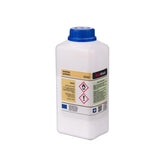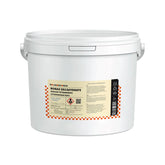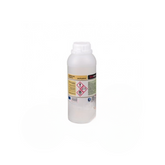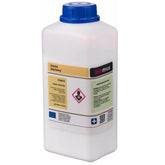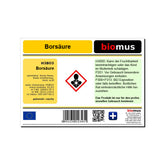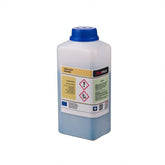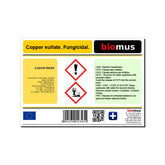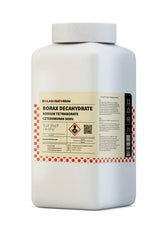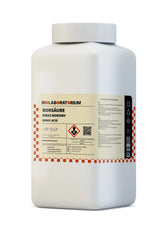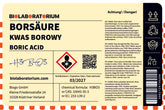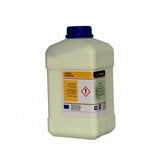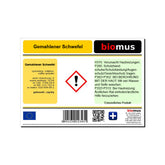Ammonium benzoate, also known as C6H5COONH4, is a chemical compound used in a wide range of applications. In this blog post, we will take a closer look at the properties, technical applications, and safety aspects of ammonium benzoate.
Properties of Ammonium Benzoate
Ammonium benzoate is a crystalline, white solid that is soluble in water. The chemical structure consists of a benzoate anion (C6H5COO-) and an ammonium cation (NH4+). This compound exhibits a number of interesting properties:
- Solubility: Ammonium benzoate is readily soluble in water, alcohol, and other polar solvents, which enables its versatile use.
- pH Value: In aqueous solution, ammonium benzoate has a slightly acidic pH of about 5-6, which is due to the hydrolysis of the ammonium cation.
- Thermal Stability: The compound is thermally stable up to about 200°C and decomposes at higher temperatures.
- Odor and Taste: Ammonium benzoate has a slightly sour odor and taste, reminiscent of benzoic acid.
Technical Applications of Ammonium Benzoate
Due to its diverse properties, ammonium benzoate is used in numerous industries:
Food Industry
Ammonium benzoate is used as a preservative in foods because it has antimicrobial properties and inhibits the growth of molds, yeasts, and bacteria. For example, it can be used in juices, jams, salad dressings, and other products.
Cosmetics Industry
In cosmetic products such as creams, lotions, or shampoos, ammonium benzoate serves as a preservative to extend shelf life and prevent microbial growth.
Pharmaceutical Industry
In the pharmaceutical industry, ammonium benzoate is used as an excipient in medications, for example as a pH buffer or solubilizing agent.
Chemical Industry
Ammonium benzoate is used in the chemical industry as an intermediate for the production of other organic compounds, for example in the synthesis of dyes or active pharmaceutical ingredients.
Agriculture
In agriculture, ammonium benzoate can be used as a fungicide to prevent fungal infestation in crops.
Other Applications
Furthermore, ammonium benzoate is used in adhesives, paints, printing inks, and as a flame retardant.
Safety in Handling Ammonium Benzoate
As with all chemical substances, it is important to observe the appropriate safety measures when handling ammonium benzoate:
- Personal Protective Equipment: When handling pure ammonium benzoate, appropriate protective equipment such as a lab coat, safety glasses, and gloves should be worn.
- Storage: Ammonium benzoate should be stored dry, cool, and protected from direct sunlight.
- Disposal: Residues or waste containing ammonium benzoate must be disposed of in accordance with applicable disposal regulations.
- Toxicity: In pure form, ammonium benzoate can be harmful if swallowed or inhaled. However, when used properly in products, exposure is low.
- Environmental Compatibility: Ammonium benzoate is biodegradable in small quantities and is considered environmentally compatible, but should not be released into the environment in an uncontrolled manner.
Overall, ammonium benzoate is a versatile chemical compound with numerous technical applications. When handled correctly and in compliance with safety regulations, ammonium benzoate can be used safely and effectively in a wide variety of industries and products.
Conclusion
Ammonium benzoate is a useful and versatile chemical reagent with a wide range of applications. From the food and cosmetics industries to chemical production - ammonium benzoate fulfills important functions. By observing the safety aspects, the substance can be used safely and in an environmentally friendly manner. Overall, ammonium benzoate is an interesting and useful molecule that plays an important role in our modern world.
